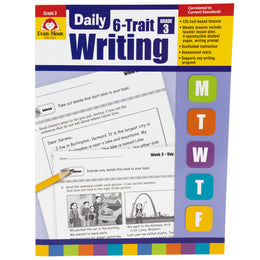










Mosdos Press Literature - Opal - 3rd Grade
Mosdos Press is a unique literature program that teaches language arts skills through a curriculum that promotes traditional values.
$166
Quantity:
Mosdos Literature Opal
Opal integrates language skills with literature for third-grade readers, building on their recently-acquired comprehension and reading fluency skills. Opal includes works by Myron Uhlberg, Ann Cameron, Berniece Freschet, and Russell E. Erickson. More than 15 poems follow thematically linked prose selections, allowing students to appreciate poets like Emily Dickinson, Jack Prelutsky, and Langston Hughes.
The Opal bundle consists of a two-book Student Reader, a Student Activity Workbook, and a two-part Teacher’s Edition. The extra student pack includes only the Student Reader and Student Activity Workbook.
Opal includes:
- 22 short stories
- 1 play
- 1 novella
- 3 biographies
- 2 nonfiction essays
- 1 long narrative poem
- 17 poetry selections
- Brief author biographies
About Mosdos Literature
Literature cannot be neutral but will clash or harmonize with your family’s values. Mosdos Literature is a complete literature program that does not glamorize evil nor present subject matter that is not age-appropriate. It never portrays a cynical disregard for positive values as normal, but it reinforces the universal ideals of courage, honesty, loyalty, and compassion.
Nearly 2 decades ago, Mosdos Press launched a unique literature series that would teach all necessary language arts skills through a curriculum that promotes traditional values. Readings are from both classic and contemporary works that are wholesome and stress caring for others and a concern for the natural world.
Student Reader
Mosdos Literature begins with the Student Reader, which is beautifully illustrated using many full-color photographs, color drawings, and black-and-white pictures. From the beginning, Mosdos committed to collecting for the Student Readers only the most engaging, morally rich, and intellectually challenging selections of fiction, nonfiction, poetry, drama, the novella, and for the older grades, novels.
There is an introduction to every story in the Student Reader and an explanation of some facet of literature. That literary focus can include defining character, theme, internal and external conflicts, setting, climax, foreshadowing, and more. This academic component is developed and illuminated through the stories.
Vocabulary words that might be unfamiliar are presented in boxes on the pages where the word first appears in the account. The stories are followed not just by the classic review questions designed to assess reading comprehension but also by more complex questions that require thoughtful analysis. Every unit concludes with activities such as writing a short skit, doing a craft, or memorizing a poem. Pick the ones that best suit your child; there are far too many to do them all.
Student Activity Workbook
Next is the consumable and engaging Student Activity Workbook that works to expand the value of the Mosdos curriculum. For nearly every story in the Student Reader, the Student Activity Workbook contains corresponding vocabulary, creative writing, or comprehension questions. It also provides extended reinforcement of the literary elements being taught. These assignments help you evaluate areas of progress in your child and concepts that might require additional work. The literature, vocabulary, and writing components all tie together, giving your child a chance to truly understand what was taught by approaching it in various ways.
Student Activity Workbooks vary by grade levels. There are more word games and puzzles for vocabulary practice, activities that focus on various language arts skills, and brief composition work for younger grades. In older grades, the puzzles and games gradually decrease while the number of writing assignments increases.
Teacher’s Edition
Each Teacher’s Edition is detailed and well-organized. The Teacher’s Edition will make lively discussions with your child possible through great commentary plus questions and answers. Homeschooling parents will appreciate that Mosdos Press did not assume any level of expertise or teaching degree when preparing their Teacher Editions. So whether new or experienced, anyone can teach literature.
Each page of the Student Reader is duplicated at a smaller size in the Teacher’s Edition, still abundantly easy to read. Information is arranged in the ample margins around these replicated pages, discussing the literary components found in each story with clear, concise explanations. Of course, the Teacher’s Guide also includes the answers for the Student Activity Workbook. This makes teaching a lot easier for every homeschool parent.
Mosdos Press is the ideal literature curriculum for any family who wants an excellent academic program that encourages wholesome values without any religious content. The thought-provoking selections are colorful and engaging, and while not religious, they still reflect sound principles.

See some sample pages from Mosdos Opal and browse all that it has to offer.
Find answers to the most frequently asked questions about this product below:
Either can be a great option. All About Reading Level 4 teaches students how to decode words that use less-common English spellings and pronunciations. For example, some of the words covered are juice, gnat, beige, daughter, comb, journey, rough, and rhyme. Level 4 also teaches how to decode words with various suffixes and those influenced by other languages. If your student would benefit from clear instruction on how to decode unusual or complicated words, then Level 4 is an ideal option.
On the other hand, many students who have mastered Level 3 are already picking up these words in the context of everyday reading. A better next step for these students can be to diversify their reading through a literature program. For that reason, Mosdos Opal is our typical recommendation for the next step after Level 3.

Our team is ready and available to provide an answer—reach out now and let us know how we can help.









